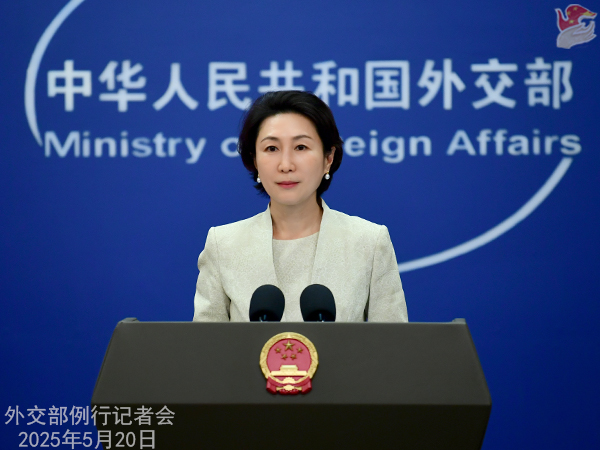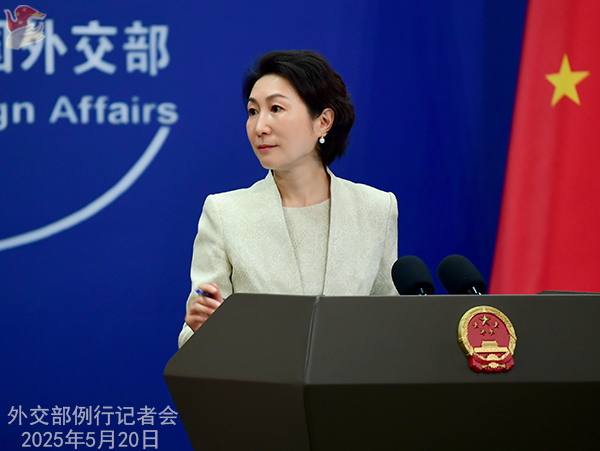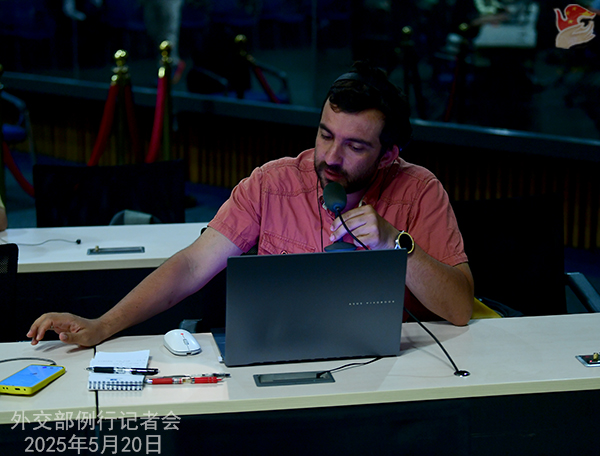
The People’s Republic of China


On May 30, Member of the Political Bureau of the CPC Central Committee and Foreign Minister Wang Yi will attend the signing ceremony of the Convention on the Establishment of the International Organization for Mediation in Hong Kong, China.
Phoenix TV: You have announced that Foreign Minister Wang Yi will attend the signing ceremony of the Convention on the Establishment of the International Organization for Mediation. Could you elaborate on relevant arrangements and China’s consideration behind promoting the establishment of the International Organization for Mediation?
Mao Ning: In 2022, China and nearly 20 countries with similar positions jointly launched the initiative to establish the International Organization for Mediation (IOMed). Through concerted efforts, the negotiations on the Convention on the Establishment of the International Organization for Mediation have been concluded, and all sides agreed to situate its headquarters in Hong Kong, China. Almost 60 countries from Asia, Africa, Latin America and Europe, and around 20 international organizations including the UN will send high-level representatives to the signing ceremony on May 30. The Global Forum on International Mediation will be held in the afternoon that day to carry out discussions on “mediation of disputes between States” and “mediation of disputes between a State and foreign investors and commercial disputes”, among other issues.
Mediation is one of the important measures to settle disputes stipulated in the UN Charter. As a relatively more amicable way to settle disputes, mediation fully respects the will of parties concerned and has the unique advantages of greater flexibility, convenience, lower costs and more effective implementation. It is reflective of the tradition of amity and harmony which is valued in the East. Aimed at settling differences and resolving disputes through mediation, the International Organization for Mediation will be the world’s first intergovernmental legal organization dedicated to resolving international disputes through mediation, and will serve as an important mechanism in safeguarding the purposes and principles of the UN Charter.
The establishment of the International Organization for Mediation is a response to the shared need of countries in the world for peace, stability and development, and echoes the call of today’s world for cooperation and mutual benefit. It pools the strengths of all major law systems, and will help bring about more fair and equitable global governance on the rule of law. We welcome support and participation from more countries in creating the International Organization for Mediation, to better enable it to coordinate with existing international disputes settlement mechanisms to make each other more effective, and provide more options and pathways to resolve international disputes through efficient and peaceful means, and better safeguard international fairness and justice.

AFP: U.S. President Donald Trump and Russian President Vladimir Putin held a call about the Ukraine war yesterday. Trump said Russia and Ukraine will immediately start negotiations towards a ceasefire and an end to the war. Putin said Russia would propose and be ready to work with the Ukrainian side on a possible peace agreement. But Putin did not agree to an unconditional truce. Does the Foreign Ministry have a comment on this call and its outcome? And does China believe at all that President Putin is dragging his feet and delaying bringing the war to an end?
Mao Ning: We noted relevant reports. On the Ukraine crisis, China supports all efforts conducive to peace, and supports direct dialogue and negotiation between Russia and Ukraine and a political settlement of the crisis. We hope parties will reach through dialogue and negotiation a fair and durable peace deal that is binding and accepted by all the parties concerned.
CCTV: The 2025 White Paper on the Development of China’s Satellite Navigation and Positioning Industries was released in Beijing on May 18. According to the white paper, China’s satellite navigation and positioning industries, especially the BeiDou Navigation Satellite System, have achieved rapid progress over recent years. Foreign media commented that BeiDou challenges the global status of the U.S.’s GPS. What is your comment?
Mao Ning: The BeiDou Navigation Satellite System is an outstanding achievement of China’s satellite navigation and positioning industries and a technological innovation for the world recognized by the UN. China’s technological innovation and industrial development never targets anyone, still less challenges anyone. Beidou is developed by China as a global good for the world. We will continue working with other countries in the spirit of open cooperation and mutual benefit to provide more advanced tech innovations that will serve and benefit humanity.
AFP: The Financial Times has reported citing unnamed sources that the Chinese Defense Minister will not attend the Shangri-la Dialogue in Singapore next week. Is the Chinese side able to confirm this? And if the report is true, what is the reason for his none attendance and who will China send instead?
Mao Ning: I’m not familiar with what you mentioned. I’d refer you to competent Chinese authorities.
EFE: Several countries, including the Vatican, have been floated as possible hosts for upcoming Ukraine-Russia negotiations. Would China support or consider participating in such talks given its emphasis on political dialogue and peaceful resolution?
Mao Ning: On the Ukraine crisis, China supports all efforts conducive to peace. China will, in light of the will of the parties concerned, work with the international community to continue to play a constructive role in ultimately solving the crisis and achieving lasting peace.




